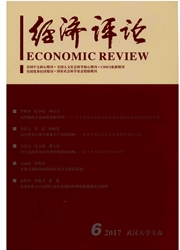

 中文摘要:
中文摘要:
与工商业相比,银行有鲜明的产业特质性——以经营和管理风险为主要业务、高财务杠杆的商业银行非常脆弱;资产质量的模糊性又使其面临更严重的代理风险。产业特质性影响银行业的适应性效率。相应地,产权和市场结构影响银行效率的机理亦有其特殊性。本文构建“市场一组织一适应性”的效率分析框架并视“结构一产权一产业特质性”为核心因素,分析三类因素影响银行效率的内在机理。使用中国商业银行数据进行的实证分析表明,安全性和创新性对银行效率的正向激励作用已初步显现;流动性制约着银行业的效率改善;盈利能力的提高对银行业效率产生了积极作用;国有化程度过高和市场结构过于集中,制约了银行业效率的整体改进。
 英文摘要:
英文摘要:
Compared with the real industry , the bank sector has its idiosyncrasy. The banks are more fragile because of high financial leverage and their business of managing risks. Banks may encounter more problems of moral hazard and the unsymmetrical information because the quality information of assets is intangible. The idiosyncrasy of this industry can affect the efficiency. Moreover, banks are more strictly supervised and regulated because of headspring of more infecting risks. As a result, the property and construction of market can affect the efficiency with different means. Based on the foregoing understanding, we develop the following analytic framework of banking efficiency, which is defined by market - hierarch - adaptability. As for the framework, the core factor is construction - property - idiosyncrasy. Then, we deduct the hypothesis on how the factor affects the efficiency of banks. Using the data of Chinese commercial banks, we provide empirical results. The findings are as follows. First, the capital and innovation have played an active role in improving the banking efficiency, though the effectiveness is not robust. Second, the liquidity problem goes against the improvement of banking efficiency. Third, the profitability is positive to the improvement of efficiency. Finally, the banking efficiency increasing is affected adversely by the excessive government property and serious concentricity of market construction.
 同期刊论文项目
同期刊论文项目
 同项目期刊论文
同项目期刊论文
 期刊信息
期刊信息
